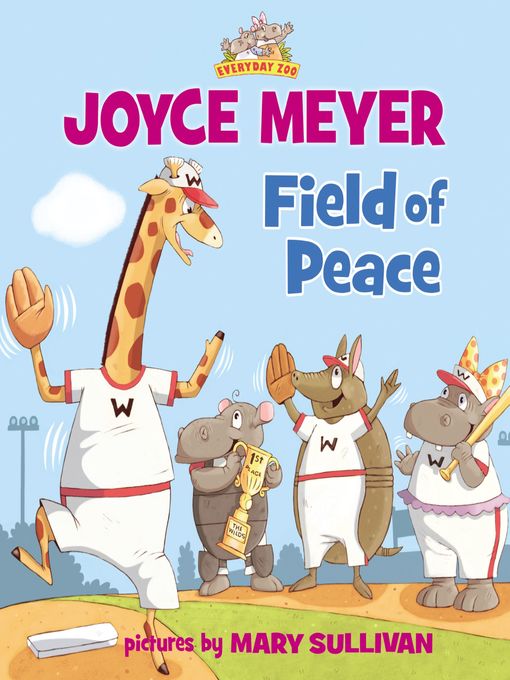
Field of Peace
Everyday Zoo
کتاب های مرتبط
- اطلاعات
- نقد و بررسی
- دیدگاه کاربران
نقد و بررسی

August 20, 2012
Meyer's second Every Day Zoo book, following Every Which Way to Pray, addresses themes of competition, honesty, and friendship. The Wilds baseball team is on a winning streak, thanks to giraffe pitcher Boyd's "Crazy Ball" and spirited drive, which his teammates, especially Arnold, an armadillo, admire. Boyd's goal of the championship trophy seems in reach until Arnold develops a fear of the ball. Choosing winning over friendship, Boyd takes advantage of an opportunity to exclude Arnold from the championship game. Sullivan's comical illustrations portray both action and emotion: for example, one half-spread shows two images of Arnold holding up his glove, saying "I got it," while a third shows him balled in his protective shell, ball and glove beside him. Another amusing scene shows a scared skunk spraying the field, necessitating a sudden change of venue; ensuing pictures depict animals with clothespins on their noses. Boyd's choice leads to guilt ("his insides were zig-zagging more than his crazy ball") and confession: "I feel ABSOLUTELY POSITIVELY AWFUL!" This accessible tale offers guidance about attaining inner peace through actions that please God. Ages 4â7.

August 1, 2012
An egotistical giraffe pitcher ultimately strikes out when his competitive spirit places his own self-interest above his teammate. Boyd dominates baseball games with his athletic pitches, but his supportive teammate Arnold Armadillo's natural instinct to retreat for cover whenever the ball draws near starts a losing streak. Boyd faces a moral and spiritual dilemma after he scares the skunk groundskeeper (causing quite the stink) and fails to communicate the change in practice location to his uncoordinated friend. Boyd's ego initially overrides his conscience, but Coach's biblical lecture quickly sets him straight. Boyd welcomes Arnold back to the fold, and the armadillo clinches the score, though whether by chance or God's intercession remains unclear. The narrative's unlikely outcome, in which winning remains the reward, seems to stunt the characters' growing humility. The bland illustrations seek to project humor in the details. Boyd wears a clothespin to stifle the skunk's fumes, for instance. Unbelievable, earnest dialogue expresses Boyd's beliefs: "Thank you, God, for a great game!" Coach's redirection fails in both subtlety and developmental appropriateness in one fell swoop. "Well, I know a great umpire that will help you make good decisions in life. That umpire's name is PEACE." Boyd's immediate change of heart fails to address the realistic complexities of Christians' walk in faith. The heavy-hoofed message stomps any legitimate sense of serenity. (Picture book. 4-7)
COPYRIGHT(2012) Kirkus Reviews, ALL RIGHTS RESERVED.

























دیدگاه کاربران